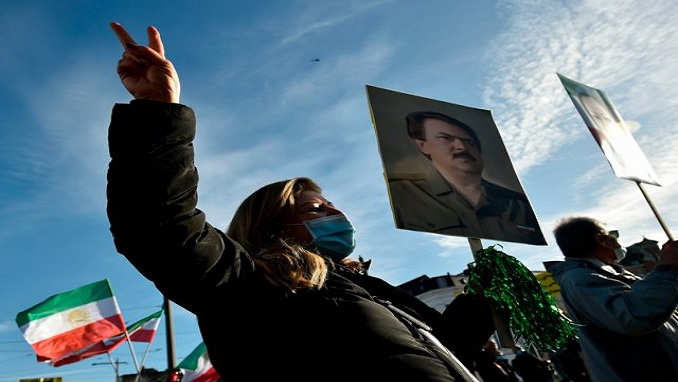Tehran condemns the verdict of a court in Belgium to sentence Iranian diplomat Assadolah Assadi to 20 years in prison for his alleged role in an attempted terrorist attack during an Iranian opposition rally in France in 2018, Iranian foreign ministry spokesman Saeed Khatibzadeh said on Thursday as quoted by Sputnik.
“Iran decisively denounces the verdict of the court that sentenced Assadolah Assadi, a diplomat of our country, to twenty years in prison,” Khatibzadeh said in a statement.
The spokesman added that the entire process related to the diplomat, including his detention and trial, were illegal and violated international norms and the 1961 Vienna Convention on Diplomatic Relations. Thus, Iran does not recognize the decision, he said.
A Belgian court convicted an Iranian diplomat Thursday for plotting a thwarted 2018 bombing of an opposition rally outside Paris and ordered him jailed for 20 years. Assadollah Assadi, now 49, was attached to the Iranian mission in Austria when he supplied explosives for the planned attack.
After the attack was foiled, he was arrested in Germany in July 2018, where he was deemed not to be able to claim diplomatic immunity. Three accomplices, dual Iranian-Belgians, were given jail terms of between 15 and 18 years and stripped of their Belgian citizenship. The June 30, 2018 gathering in Villepinte, near Paris, included senior leaders of the exiled National Council of Resistance in Iran (NCRI) and some high-profile supporters including former US president Donald Trump’s lawyer Rudy Giuliani.
The case has shone a light on Tehran’s international operations just as it hopes the arrival of new US President Joe Biden will herald a loosening of sanctions.
Assadi was tried in the Belgian port city of Antwerp along with the three co-accused who were also arrested after police foiled the plot. The diplomat was charged with “attempted murders of a terrorist nature” and “taking part in the activity of a terrorist group”.
Belgian-Iranian couple Nasimeh Naami, 36, and Amir Saadouni, 40, accepted from Assadi a half-kilo of TATP explosives and a detonator. Naami received an 18-year sentence and Saadouni 15 years. Belgium-based Iranian poet Mehrdad Arefani was an accomplice of Assadi’s who had been due to guide the couple at the rally. He was jailed for 17 years.
Belgian officers halted the couple’s car with the bomb on board on the day of the event, preventing what the NCRI’s lawyers said would have been a “bloodbath”. Later that year, the French government accused Iran’s intelligence service of being behind the operation, a charge the Islamic Republic has furiously denied.
The case stirred tensions between European powers and Tehran, and was seized upon by NCRI supporters to press their case against the Iranian regime.
“It is the regime in its entirety which is being judged in this trial — it is about state terrorism,” the group’s leader Maryam Rajavi told AFP before the verdict.
Afterwards, she tweeted that the convictions dealt “a heavy blow the regime in Iran. It is an blow (sic) to its strategy of export of terrorism”.
The NCRI is the political wing of the Mujahedeen-e-Khalq (MEK), known in English as the People’s Mujahedin Organisation of Iran (PMOI). The MEK backed Ayatollah Ruhollah Khomeini in the 1979 revolution that ousted shah Mohammad Reza Pahlavi, but rapidly fell out with the new authorities.
The group sided with Iraq under Saddam Hussein in the 1980-1988 Iran-Iraq war and thousands of its alleged members were executed in a ruthless crackdown in Iran. It now wages a campaign against the Islamic Republic in exile and regards itself as the most significant opposition group outside the country.
For detractors and many Iranians who do not support Tehran’s government, the MEK is a cult-like group that the West once classed as a terrorist organisation. It is banned in Iran, but enjoys the support of several high-profile former US and European officials and a network of Iranian exiles opposed to the regime.
